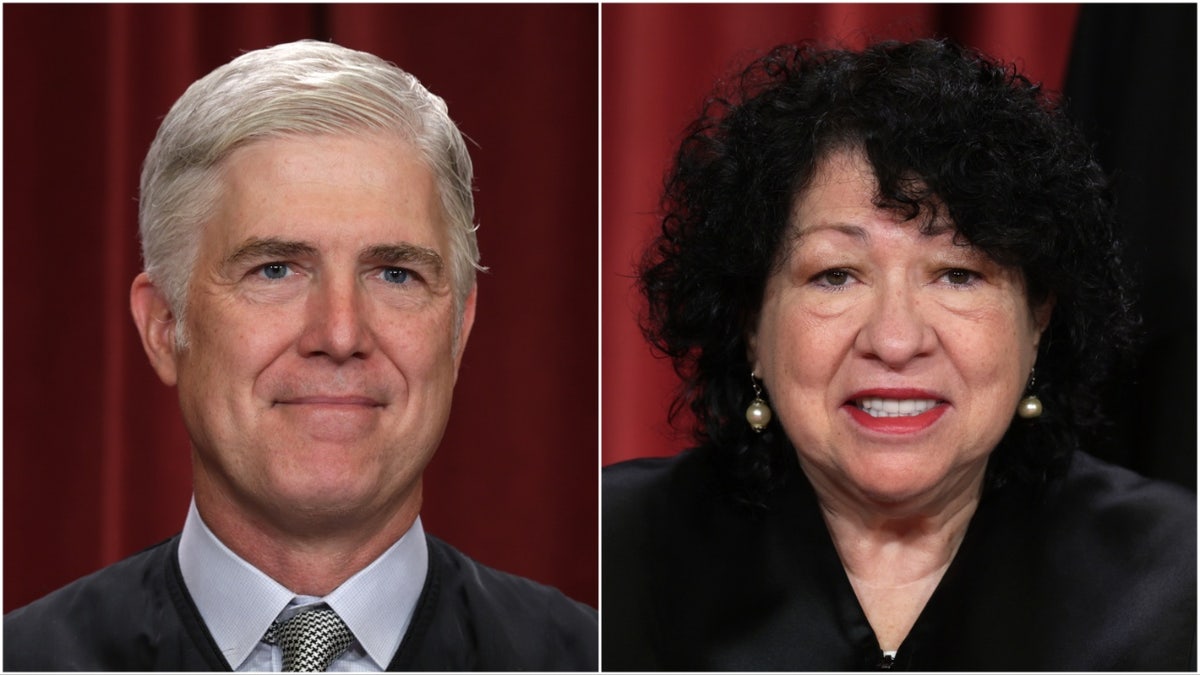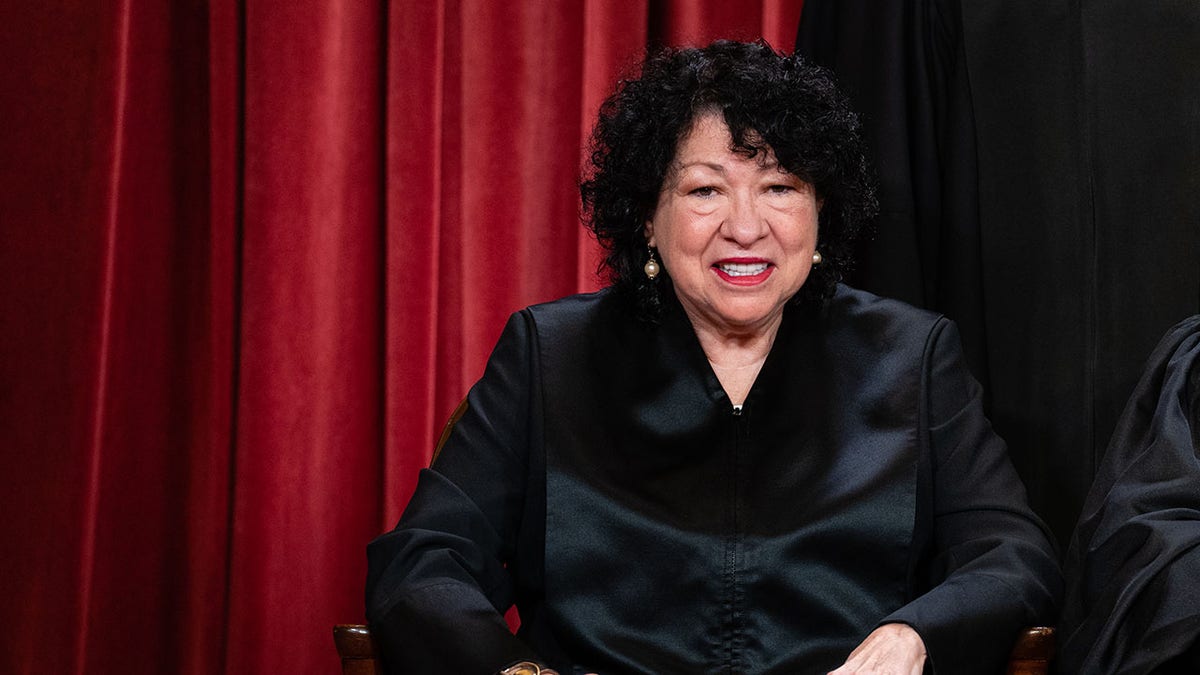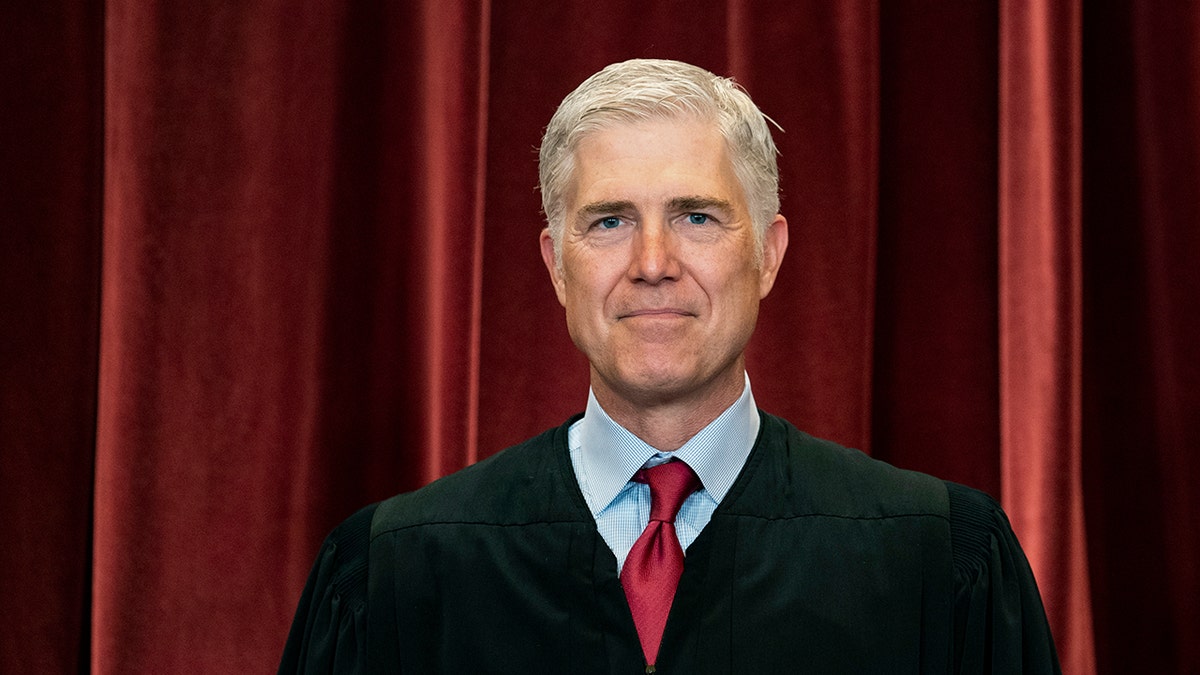Supreme Court rules in favor of Christian web designer
Fox News anchor Shannon Bream and Fox News contributor Jonathan Turley discuss the Supreme Court’s decision that the First Amendment allows a Christian graphic designer to decline to work on websites for same-sex weddings.
Supreme Court Justice Neil Gorsuch issued a harsh rebuke of Justice Sonia Sotomayor’s dissent in the case of a Christian web designer who the court ruled was not obligated to design websites for gay couples.
"It is difficult to read the dissent and conclude we are looking at the same case," Gorsuch wrote in the 6-3 Supreme Court decision on Friday. That decision said web designer Lorie Smith was not legally required to design websites for gay marriages because doing so would violate her free speech rights and Christian beliefs, despite a Colorado law that bans discrimination based on sexual orientation.
Gorsuch said Sotomayor’s dissent in the case "reimagines the facts" from "top to bottom" and fails to answer the fundamental question of, "Can a State force someone who provides her own expressive services to abandon her conscience and speak its preferred message instead?"
"In some places, the dissent gets so turned around about the facts that it opens fire on its own position," Gorsuch wrote. "For instance: While stressing that a Colorado company cannot refuse ‘the full and equal enjoyment of [its] services’ based on a customer’s protected status… the dissent assures us that a company selling creative services ‘to the public’ does have a right ‘to decide what messages to include or not to include…' But if that is true, what are we even debating?"
SUPREME COURT RULES AGAINST BIDEN STUDENT LOAN DEBT HANDOUT

Justice Neil Gorsuch, left, and Justice Sonia Sotomayor. (Getty Images)
Gorsuch wrote that rather than address the key aspects of the case, the dissent "spends much of its time adrift on a sea of hypotheticals about photographers, stationers, and others, asking if they too provide expressive services covered by the First Amendment."
Friday's decision reversed a lower court ruling that sided against Smith, who said the law infringed on her First Amendment rights by forcing her to promote messages that violate her deeply held faith.
The high court's majority stated that "under Colorado’s logic, the government may compel anyone who speaks for pay on a given topic to accept all commissions on that same topic — no matter the message — if the topic somehow implicates a customer’s statutorily protected trait."
Sotomayor dissented from the majority, along with Justices Elena Kagan and Ketanji Brown Jackson. They called the ruling "a new license to discriminate" and said the "symbolic effect of the decision is to mark gays and lesbians for second-class status."
WHAT HAPPENS NOW THAT SUPREME COURT STRUCK DOWN BIDEN’S STUDENT LOAN HANDOUT SCHEME

Associate Justice Sonia Sotomayor smiles during the formal group photograph at the Supreme Court in Washington, D.C., on Oct. 7, 2022. (Eric Lee/Bloomberg via Getty Images)
"The unattractive lesson of the majority opinion is this: What’s mine is mine, and what’s yours is yours. The lesson of the history of public accommodations laws is altogether different. It is that in a free and democratic society, there can be no social castes," Sotomayor said.
The case, 303 Creative LLC v. Elenis, drew national attention as it featured competing interests of the First Amendment right to free speech and non-discrimination against LGBTQ people.
The law, known as the Colorado Anti-Discrimination Act (CADA), prohibits businesses providing sales or services to the public from denying services to someone based on their identity. Supporters of CADA claim that the law is necessary to keep businesses from discriminating.
"Consistent with the First Amendment, the Nation’s answer is tolerance, not coercion," Gorsuch wrote. "The First Amendment envisions the United States as a rich and complex place where all persons are free to think and speak as they wish, not as the government demands. Colorado cannot deny that promise consistent with the First Amendment."
WEB DESIGNER'S VICTORY AT SUPREME COURT IS FREE SPEECH WIN FOR ALL

Associate Justice Neil Gorsuch stands during a group photo at the Supreme Court in Washington, D.C., on April 23, 2021. (Erin Schaff/The New York Times via AP, Pool, File)
Smith has maintained throughout the case that she has no problem working with the LGBTQ community, just not for gay weddings.
"I think it’s important for people to understand that I love and welcome the opportunity to work with all people. My case has never been about choosing which client to work with, but about choosing the message that I’m being asked to promote," Smith told Fox News Digital in a March 2022 interview.
"In this case, Colorado seeks to force an individual to speak in ways that align with its views but defy her conscience about a matter of major significance," Gorsuch wrote in the majority opinion.
CLICK HERE TO GET THE FOX NEWS APP
"But, as this Court has long held, the opportunity to think for ourselves and to express those thoughts freely is among our most cherished liberties and part of what keeps our Republic strong," he wrote.
Fox News Digital’s Brianna Herlihy contributed to this report.





















